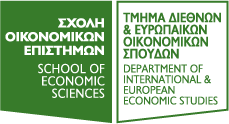Marxian Economics I
NUMBER OF ECTS CREDITS ALLOCATED: 6 ECTS credits
LEARNING OUTCOMES OF THE COURSE UNIT
- Identify and understand the most important concepts, debates and problems in Marxist political economy. In particular, the course builds knowledge of the basic notions and analytical instruments of Marxian theory: philosophical foundations, methodology, the individual and his/her preferences; the labor theory of value, the theory of money, price determination; the theory of capital, the source of profit, the distribution of surplus value, the accumulation of capital; capitalist competition, the formation of the general rate of profit and prices of production; the reproduction of capital (simple and extended) and the associated conditions for the equilibrium of the capitalistic system; technological change and its impacts on productivity and unemployment; theories of the declining rate of profit.
- Critically interpret economic issues, problems and debates in the light of Marxist methods, concepts and contributions. Students acquire knowledge of an alternative critical economic approach to current economic phenomena. Marxian Economics offers to learners notions and analytical instruments that enable them to understand not only how limited resources are allocated among competing uses or needs, but also how they are distributed among different social classes and individuals. It evaluates the economic and political organization of society in view of decision making over production and distribution of product and income, and over the establishment of institutions and policies to achieve social justice and welfare. The critical discussion of the economic issues develops the critical competence of the students since the course provides comparisons between their Marxian analysis and the Neoclassical account and, to a lesser degree, other alternative approaches. Through critical analysis, the capacity of learners to scrutinize difficult problems is enhanced.
- Apply more developed analytical and critical skills through the ideas and case studies discussed in the lecture and through individual research.
- Enhance students’ communication, critical thinking and synthesising skills so that the learners can produce novel solutions to new and old problems in contemporary societies that have the potential to get supported by the majority of the people.
PREREQUISITES AND CO-REQUISITES: “Not applicable”
COURSE CONTENTS:
The course aims to introduce students in Marxian Political Economy, which is an alternative critical economic approach to current economic phenomena. Marxian Economics does not only examine how limited resources are allocated among competing uses or needs, but also how they are distributed among different social classes and individuals. The course examines the basic elements of Marxian theory as developed by Marx himself, as well as the by classic and modern Marxists. The course begins with the philosophical foundations of Marxian economic theory and its methodology. The individual, his/her preferences and resource allocation among individuals are conceptualized from the standpoint of historical materialism.
We next discuss the labor theory of value, the theory of money, and price determination. We then examine the theory of capital and surplus value in order to explain the notion of profit and the accumulation of capital in capitalism. We also analyze the formation of the general rate of profit and prices of production on the basis of capitalist competition. The discussion of the reproduction of capital (simple and extended) and the associated conditions for the equilibrium of the capitalistic system follows. Furthermore, we analyze the distribution of surplus value and its role in providing conditions for the extraction and appropriation of surplus value. We then move on to a discussion of technological change and its impacts on productivity and unemployment. Finally, we examine the Marxist theories of capital accumulation and the declining rate of profit, making references to conditions which lead to economic crises. The theoretical analysis is complemented with case studies. The discussion of all the above issues will provide comparisons between their Marxian analysis and the Neoclassical account. We will also refer to the common elements between the Marxian analysis and other critical approaches.
RECOMMENDED OR REQUIRED READING
Distinguish “Recommended bibliography” from “Alternative bibliography”
- Political Economy of the Capitalism, A. Vlachou (editor), Kritiki Publications, 2009 (recommended bibliography)
- Marxian Economics I, A. Vlachou, Lectures Notes, Athens University of Economics and Business, 2011(recommended bibliography).
- Theory of Economic Development in Greece, P.M.Sweezy, Typothito-Dardanos Publications (alternative bibliography)
- Marxian Economics I, A. Vlachou, Lectures Notes, Athens University of Economics and Business, 2011(alternative bibliography).
PLANNED LEARNING ACTIVITIES AND TEACHING METHODS
2 regular two-hour lectures per week/internet-based communication (e-class) with students/case studies
ASSESSMENT METHODS AND CRITERIA: Final written exam and optional paper
LANGUAGE OF INSTRUCTION: Greek





